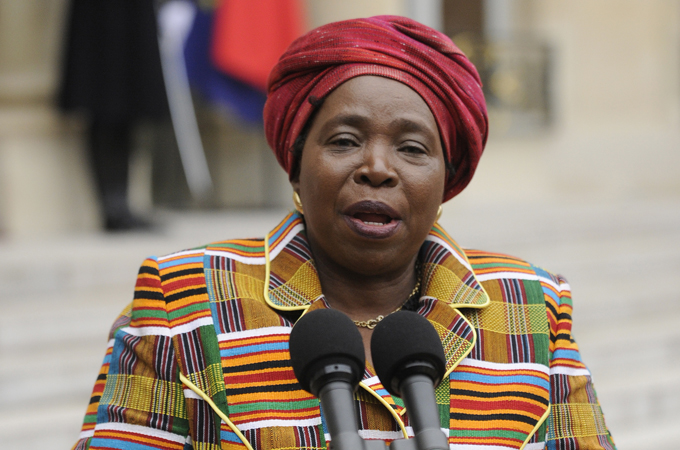Women empowerment crucial to building resilience against climate change

Jeffrey Gogo Climate Story
Former director general of the Food and Agriculture Organisation José Graziano da Silva once remarked: “There is no inclusive and sustainable way forward for Africa without women, youth and agriculture.”
Indeed, agriculture offers Africa, and Zimbabwe in particular, an opportunity for economic prosperity, food security, poverty eradication, skills transfer and economic empowerment for women and girls.
But all this will come to naught if governments do not do enough to build women’s resilience against climate change.
The science has been shown to have the most devastating effect on agriculture. In large parts of Africa, scientists forecast farm output to decline by between 30 and 50 percent by 2030 due to changing climatic conditions.
Throughout much of the continent, agriculture is threatened by multiple issues, ranging from population increase to urbanisation and industrialisation, to the sub-division of land and degraded resources
Women disproportionately bear much of the brunt given their traditional roles as tillers of the land and their recognition as the backbone of the family unit.
In Zimbabwe, the State is looking at improving food security and nutrition, as highlighted in a number of current and past economic blueprints, while it has now started to ramp up funding for women in agriculture through ring-fenced facilities.
Moreover, as a short-term measure, the classification of agriculture as an essential service during the ongoing Covid – 19 lockdown has insulated women farmers, especially those in horticulture, against financial losses arising from market shut-downs.
But changes in the agriculture landscape over the decades have already resulted in massive food shortages in successive years, leaving some seven million people in need of food aid in 2020.
The country is now a net food importer. The proportion of people living below the Food Poverty Line, the UN’s measure of hunger, increased from 29 percent in 1995 to 58 percent in 2005, worsening to unconfirmed levels by 2008.
What this means is that current and future changes in climate now call for greater astuteness in development planning to minimise risk and bolster food production and security, particularly targeting women.
Six years ago, former African Union (AU) Commission chairperson Dr Nkosazana Dlamini-Zuma had some interesting insights on what governments should do (or would have done) to help women cope with climate change.
In a letter delivered in January 2014, but set during AU’s centenary in 2063, Dr Zuma calls to the spirit of legendary Pan-Africanist Dr Kwame Nkrumah, informing him that by adopting forward looking strategies, Africa had “refused to bear the brunt of climate change.”
Dr Dlamini-Zuma made specific reference to the hazards of climate change on women in agriculture, Africa’s mainstay.
By 2063, and in Dr Dlamini-Zuma’s eyes, women are seen to have managed to address the multi-layered challenges of climate change “through the intelligent application of centuries-old indigenous knowledge, acquired and conserved by African women who have tended crops all seasons.”
For that to happen, both the African Union and it’s representative governments, should, however, take specific steps to build capacity and resilience among women in line with the long-term goals of Agenda 2063 – the AU’s development plan for the next half century.
The AU is already funding women-led projects in the areas of environment and climate change, providing grants of up to $25 000 to African governments or NGOs for projects that can prove an ability to empower women in water management, agriculture and energy.
In Zimbabwe, the Government has set up a bank that specifically provides finance to women and the youth. While the bank does not primarily target climate resilience or agriculture projects as a priority, it goes some way to demonstrate the State’s commitment to ending inequalities by empowering women financially.
Projects that build women’s resilience against climate change must, as of necessity, “share women’s traditional and modern agricultural practices through preparation, sowing and transplanting, processing, storage and conservation of resources through exchange of knowledge and field visit.”
They should also “encourage women to adopt new inexpensive technology and innovative practices to enhance their productiveness,” say experts.
But we are yet to see deliberate top-down interventions from most African governments, including Zimbabwe’s, targeting those groups of women facing harsh climate realities due to their continued marginalisation, mainly on account of poor education, lack of access to information and resources.
Such interventions are crucial to bridging the social and economic gaps that perpetually hinder the capacity of poor African women to adapt or mitigate the adverse impacts of climate change.
That said, several African countries have implemented important measures towards women empowerment. Many women now occupy influential positions of authority in business, politics and economics, previously male domains.
Inequalities still exist, however. Education still remains poor, access to or ownership of critical factors of production such as land is limited and poverty remains entrenched among many African women.
By addressing inequalities in other areas such as business, education and politics, African governments might be able to build capacity for tackling existing challenges in the climate change sector.
For now, we hold on to Dr Dlamini-Zuma’s aspirations.
“The social impact of the agrarian revolution was perhaps the most enduring change it brought about,” she said in her letter from the future.
“The status of women, tillers of the land by tradition, rose exponentially. The girl child, condemned to the kitchen or the fields in our not too distant past, now has an equal chance of acquiring a modern education (or owning a farm or an agribusiness). African mothers today have access to tractors or irrigation systems that can be easily assembled.”
God is faithful.








Comments